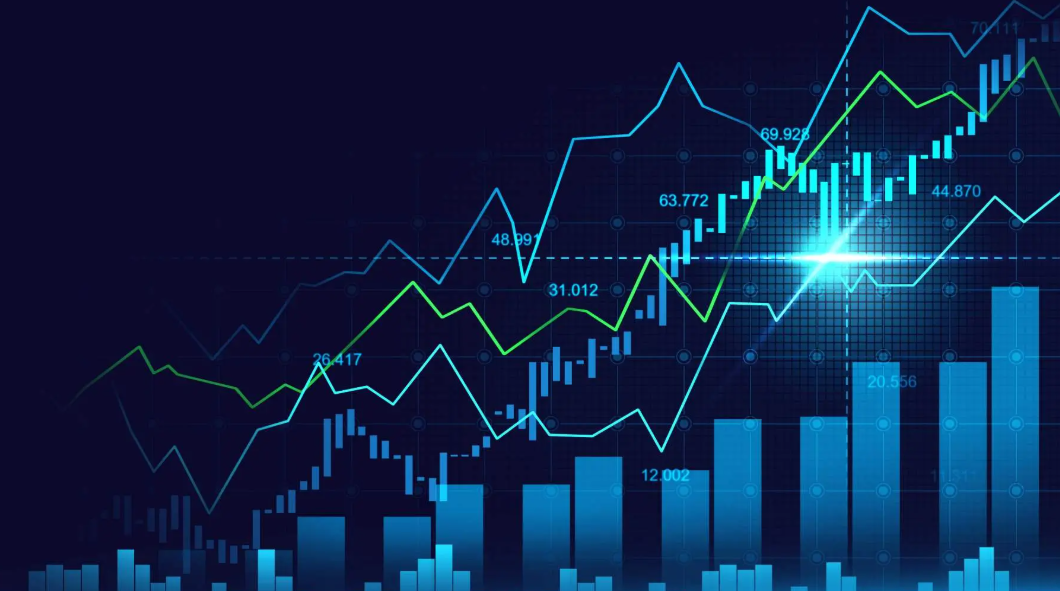
7 minute read
Is Forex Trading Legal in Philippines? A Straightforward Guide
from Forex Philippines
If you’re in the Philippines and wondering, “Is forex trading legal?” the short answer is yes, but with some caveats. Forex trading is legal in the Philippines, but it’s heavily regulated, and you’ll need to navigate a few hurdles to do it safely and compliantly. In this article, I’ll break down everything you need to know about forex trading in the Philippines—its legality, regulations, risks, and how to get started the right way. Whether you’re a beginner or a seasoned trader, this guide will help you understand the landscape and trade with confidence. Let’s dive in!
Top 4 Best Forex Brokers in Philippines
1️⃣ Exness: Open An Account or Visit Brokers 🏆
2️⃣ XM: Open An Account or Visit Brokers 💥
3️⃣ JustMarkets: Open An Account or Visit Brokers ✅
4️⃣ Quotex: Open An Account or Visit Brokers 🌐
Understanding Forex Trading in the Philippines
Forex trading, or foreign exchange trading, involves buying and selling currencies to profit from changes in their exchange rates. It’s the largest financial market globally, with over $6 trillion traded daily, making it an attractive opportunity for Filipinos looking to diversify their income streams. But before you jump in, you need to understand the legal framework surrounding forex trading in the Philippines.
The Bangko Sentral ng Pilipinas (BSP) and the Securities and Exchange Commission (SEC) are the two main regulatory bodies overseeing forex activities. The BSP regulates institutional forex trading, such as transactions through banks, while the SEC focuses on retail trading and investment firms. Together, they ensure that forex trading is conducted transparently and that traders are protected from fraud.
The Legal Status of Forex Trading
So, is forex trading legal? Absolutely, but there’s a catch. While it’s legal for Filipinos to trade forex, there are no locally licensed forex brokers for retail traders. In 2016, the SEC issued an advisory stating that forex trading through unlicensed entities is illegal, largely to curb scams and protect investors from fraud. This stance was reinforced in 2018 due to reports of heavy losses and fraudulent schemes targeting Filipino traders.
What does this mean for you? You can legally trade forex, but you’ll likely need to use international brokers, as local brokers don’t offer retail forex trading services. These international brokers must be regulated by reputable authorities like the UK’s Financial Conduct Authority (FCA), Australia’s ASIC, or Europe’s CySEC to ensure your funds are safe. Using unregulated brokers is risky and could expose you to scams or financial losses with no legal recourse.
Why the Restrictions?
The SEC’s tough stance stems from a history of forex scams in the Philippines. In the past, unlicensed brokers and fake “investment gurus” lured Filipinos with promises of high returns, only to disappear with their money. To protect retail traders, the SEC banned local brokers from offering forex trading services and warned against unregistered entities. While this makes trading a bit more complicated, it’s a safeguard to ensure you don’t fall victim to fraud.
Additionally, the BSP regulates foreign exchange transactions to stabilize the Philippine peso (PHP) and prevent illegal activities like money laundering. This is why forex brokers operating in the Philippines must meet strict requirements, such as a minimum capitalization of ₱300 million and regular reporting to the BSP.
How to Trade Forex Legally in the Philippines
Ready to start trading? Here’s a step-by-step guide to doing it legally and safely:
1. Choose a Reputable Broker: Since there are no BSP-licensed retail forex brokers, you’ll need to work with an international broker. Look for brokers regulated by top-tier authorities like the FCA, ASIC, or CySEC. Popular options for Filipino traders include IG, FOREX.com, and Interactive Brokers, which are trusted globally and offer robust platforms like MetaTrader 4 (MT4) or MetaTrader 5 (MT5).
2. Verify the Broker’s Regulation: Before signing up, check the broker’s website for their regulatory details, usually found in the “Legal Docs” or “About Us” section. Ensure they’re licensed by a reputable authority and have a good track record. Avoid brokers promising “guaranteed profits” or high leverage with no oversight—these are red flags for scams.
3. Open and Fund Your Account: Most brokers require proof of identity and address (like a national ID or bank statement) to open an account. You can fund your account using e-wallets like PayPal or Skrill, as many brokers don’t accept PHP directly, which means you’ll need to convert to USD or another major currency. Be aware of conversion fees! Some brokers have low minimum deposits, starting at $10-$300, making it accessible for beginners.

✅ Trade with Exness now: Open An Account or Visit Brokers 👈
4. Practice with a Demo Account: If you’re new to forex, start with a demo account to practice trading without risking real money. Many brokers offer demo accounts with virtual funds, allowing you to test strategies and get comfortable with the platform.
5. Understand Taxation: Forex profits in the Philippines are considered ordinary income and are subject to income tax, with rates ranging from 20-35% depending on your income level. You’ll need to declare your earnings to the Bureau of Internal Revenue (BIR). Consult a tax professional to ensure compliance, as failing to report income could lead to penalties.
6. Use Risk Management Tools: Forex trading is high-risk due to market volatility and leverage. Use tools like stop-loss orders to limit potential losses, and never risk more than you can afford to lose. A good rule of thumb is to risk only 1-2% of your account per trade.
Challenges Filipino Traders Face
While forex trading is legal, there are some challenges to keep in mind:
No Local Brokers: Since local brokers don’t offer retail forex trading, you’ll rely on international brokers, which can lead to issues like withdrawal delays or higher fees due to currency conversion.
Scam Risks: Unregulated brokers often target Filipino traders with promises of quick riches. Always verify a broker’s credentials and avoid schemes offering “guaranteed returns.”
Tax Compliance: Declaring forex income can be complex, especially if you’re using offshore brokers. Some traders try to avoid taxes by using unregulated brokers, but this is illegal and risky.
Market Volatility: Forex markets are highly volatile, and leverage can amplify both gains and losses. Without proper risk management, you could lose your entire investment.
Tips for Success in Forex Trading
To thrive as a forex trader in the Philippines, follow these practical tips:
Educate Yourself: Take advantage of free resources like webinars, e-books, and tutorials offered by brokers like FOREX.com or FxScouts. Understanding technical and fundamental analysis is key to making informed trades.
Start Small: You don’t need millions to start. Some brokers allow you to begin with as little as ₱5,000. Build your skills and confidence before scaling up.
Choose the Right Platform: Platforms like MT4 and MT5 are popular among Filipino traders for their user-friendly interfaces and powerful charting tools. Pick a platform that suits your trading style.
Stay Informed: Follow global financial news to understand market trends. The New York trading session, which aligns with evening hours in the Philippines, is a great time to trade due to high liquidity.
Join Trading Communities: Engage with online forums or social media groups like Reddit’s r/phinvest to connect with other Filipino traders, share tips, and stay updated on regulations.
Common Myths About Forex Trading in the Philippines
There are a few misconceptions that can confuse new traders. Let’s clear them up:
· Myth: Forex trading is completely illegal in the Philippines.Not true! It’s legal as long as you use regulated brokers and comply with tax laws. The SEC’s advisories target unlicensed brokers, not individual traders.
· Myth: Forex profits are tax-free.False. Forex gains are taxable as ordinary income. Always report your earnings to avoid legal trouble.
· Myth: You need a lot of money to start.Nope! Many brokers offer low minimum deposits, and you can start with as little as $10 in some cases.
Final Thoughts: Is Forex Trading Worth It?
Forex trading is a legitimate and potentially lucrative opportunity for Filipinos, but it’s not without risks. By choosing a regulated international broker, educating yourself, and practicing sound risk management, you can trade forex legally and safely. The lack of local brokers and strict regulations may seem daunting, but with the right approach, you can navigate these challenges and tap into the global forex market.
✅ Trade with Exness now: Open An Account or Visit Brokers 👈
Read more:

